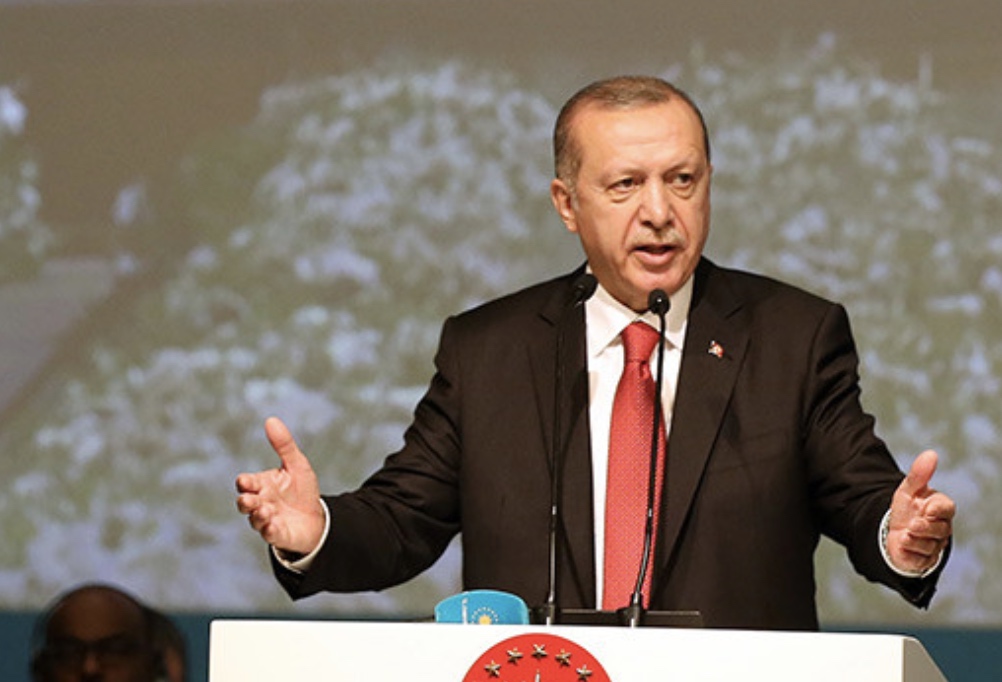By Janet Ekstract
İSTANBUL- Ever since Turkish President Recep Tayyip Erdogan announced Turkiye would not vote for Sweden and Finland to enter NATO, speculation has swirled as to exactly what the Turkish leader’s motives are and what exactly he hopes to gain. While Erdogan insists that Sweden and Finland must take steps to address what he refers to as “legitimate” concerns that both Nordic countries are a safe-haven for terrorists and their respective organizations – ironically, the Turkish government is busy contending with ISIS and other terrorists in Istanbul. On Monday, a new group of terrorists were arrested there.
In a phone call with NATO Secretary-General Jens Stoltenberg last Wednesday, Erdogan said that Turkiye could not move ahead on the NATO bids without seeing “concrete steps” by Sweden and Finland that would satisfy the Turkish government’s “rightful expectations.” The Turkish president and Turkish Foreign Minister Mevlut Cavusoglu have already said that those expectations were not forthcoming during discussions. Cavusoglu said any agreement between Turkiye and Sweden would need to include written commitments that meet demands Turkiye has to fight terrorism and defense industry cooperation. For his part, Stoltenberg said on Twitter that he did have what he called a “constructive conversation” with Erdogan in the run-up to the NATO summit in Madrid set to meet next week June 29-30. Stoltenberg commented: “We discussed the importance of addressing Turkiye’s legitimate security concerns on the fight against terrorism and making progress in the NATO accession process for Finland and Sweden.”
Meanwhile, Turkiye’s insistence on resisting the NATO bids, especially Sweden’s, puts Sweden’s Kurdish community in a rather uncomfortable position, according to an article in CNN on June 20. In the article, CNN highlights how uneasy some Kurdish-origin Swedish citizens feel about Erdogan’s attitude toward Sweden’s NATO bid. Though Sweden has denied harboring terrorists or supporting the PKK, according to reports, it does have an agreement with independent deputy Amineh Kakabaveh a member of Swedish parliament who supports the YPG/PKK, considered to be a terrorist organization. On Friday, the Swedish President Magdalena Andersson told SVD newspaper that Kakabaveh’s parliamentary term would end in three months so the agreement with her, would no longer be valid. Andersson added that there are no negotiations with Kakabaveh in additional budget talks.
Sweden is home to a very large Kurdish community and Kakabaveh, originally from Iran often had the pivotal vote in parliament due to the balance of parties in the Swedish parliament and is purportedly on Turkiye’s extradition list. As some Swedish-Kurdish citizens in the article point out, they explain that Erdogan is lumping all Kurds into the “terrorist” category including calling for the extradition of Swedish-Kurdish citizens who he considers enemies of Turkiye, including a Nobel prize winning author. A number of Turkish-Kurds sought refuge in Sweden years ago, due to the Turkish government’s opposition to their political views.
In a joint press conference last week, Finland’s Prime Minister Sanna Marin said both Finland and Sweden were “taking all the issues very seriously and are having talks,” referring to Turkish concerns. Director of Stockholm University’s Institute for Turkish Studies, Paul Levin who spoke to CNN said: “From the Turkish perspective they are saying: Look Sweden (if) you want to join a military alliance where we are one of the members then you have to respect our national security perspective.” Levin added: “We perceive of these groups as national security threats. They (Turkiye) make the same demands over other NATO member states but they don’t have the same leverage as they do now that Sweden is waiting to come in.” In the meantime, Sweden indicated it plans to have a more in-depth bilateral dialogue on the issue with Turkey in the coming weeks. Turkiye’s foreign minister had previously commented that if Sweden and Finland want Turkiye’s approval on their NATO bids, they should amend their laws. Finland’s president Saana Marin acknowledged the bids could stall if talks with Turkiye do not have a positive outcome.




